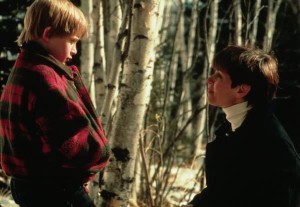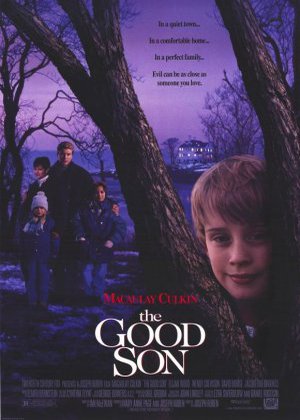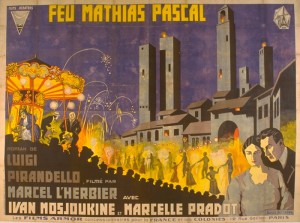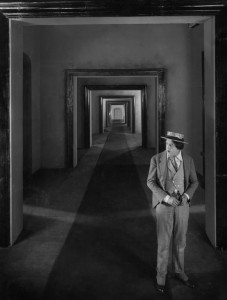From the Chicago Reader (October 1, 1993). — J.R.

THE GOOD SON
* (Has redeeming facet)
Directed by Joseph Ruben
Written by Ian McEwan
With Macaulay Culkin, Elijah Wood, Wendy Crewson, David Morse, Daniel Hugh Kelly, and Quinn Culkin.

The innocent-looking child who’s really evil incarnate is a natural idea for a horror movie, but getting us to believe in such a character isn’t as simple as it might sound. Ray Bradbury had a relatively easy time of it in “The Small Assassin,” a short story first published back in 1946 about an infant who murders people, because babies are somewhat mysterious and hence easier to project abstract notions on. In The Good Son, a mainly unconvincing thriller offering us 12-year-old Macaulay Culkin as evil incarnate, there are actually two problems — accepting Culkin as a child and accepting him as evil. Perhaps what we mean today by both “child” and “evil,” ideologically speaking, is at the root of the problem.
The hero of The Good Son is another boy of roughly the same age, Mark (Elijah Wood), living in the southwest, who has been traumatized by the recent death of his mother. Shortly before she dies she tells him, “I’ll always be with you,” and Mark interprets this to mean that she’ll come back to him as someone else. Read more
The following are my responses to questions from Alvaro Arroba about Kiarostami for the Spanish film magazine Letras de Cine that wound up appearing in Spanish in their 7th issue, in 2003. I’ve taken the liberty of slightly revising the English in a few cases, hopefully while respecting the meanings that Alvaro had in mind. –- J.R.

1- WHICH IS THE FIRST ABBAS KIAROSTAMI FILM YOU SAW? AND WHAT WAS YOUR FIRST REACTION TOWARDS IT? The first Kiarostami film I saw was LIFE AND NOTHING MORE at the Locarno International Film Festival, and it struck me immediately as a masterpiece. I was impressed by the film’s profound meditation on how to perceive and deal emotionally with a disaster, as well as by the use of long shots, which reminded me especially of the philosophical distance of Jacques Tati: not always knowing what to look at in a busy frame is sometimes a way of trusting in the choices and imagination of the spectator, and for me Kiaroistami in this film and Tati in PLAYTIME are both masters in this highly ethical game….I also have to admit with embarrassment that when I saw my next two Kiarostami films, CLOSE-UP and WHERE IS THE FRIEND’S HOUSE?, Read more
From Monthly Film Bulletin, February 1976 (Vol. 43, No. 505). A tinted restoration of this film was presented at Bologna’s Il Cinema Ritrovato with a beautiful, large-orchestra score composed and conducted by Timothy Brock a few years back, and I must say that this very impressive presentation substantially transformed my original skepticism, fully demonstrating how much difference a serious archival restoration can make. And Flicker Alley has brought out this version on a lovely Blu-Ray, which I can heartily recommend. — J.R.

Feu Mathias Pascal
(The Late Mathias Pascal)
France, 1925
Director: Marcel L’Herbier

Miragno, Italy. Acting on behalf of herself, her son Mathias and her sister-in-law Scolastique, Maria Pascal authorises agent Batta Maldagna to sell her property; worried about her debts, he sells it at one-sixth its value. Mathias’ shy friend Pomino, secretly in Iove with Romilde Pescatore, asks Mathias to propose to her on his behalf at a village fête. Discovering that she is-in love with himself, Mathias marries her instead, but soon finds his life made miserable by his shrewish mother-in-law, who holds sway over Romilde. He goes to work at the chaotic municipal library, where his time is largely spent contriving to catch rats. After the nearly simultaneous deaths of his mother and infant daughter, he flees to Monte Carlo, where, by following the advice of a gambler who tells him to bet on 12, he unexpectedly wins a fortune. Read more





